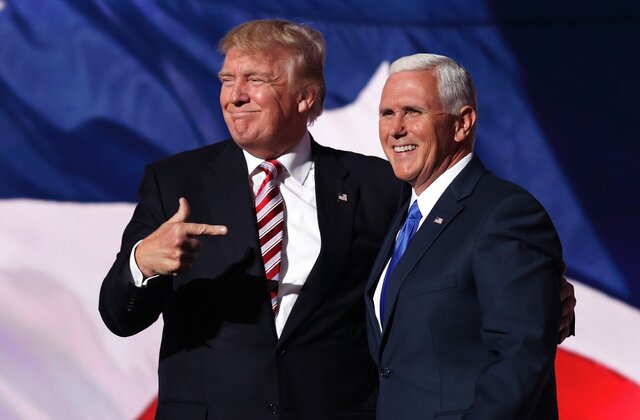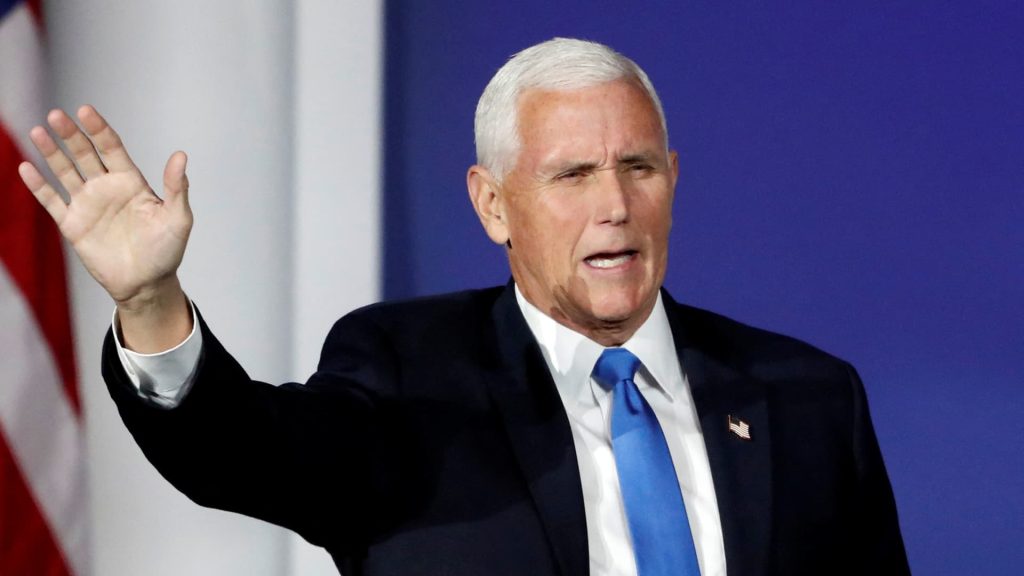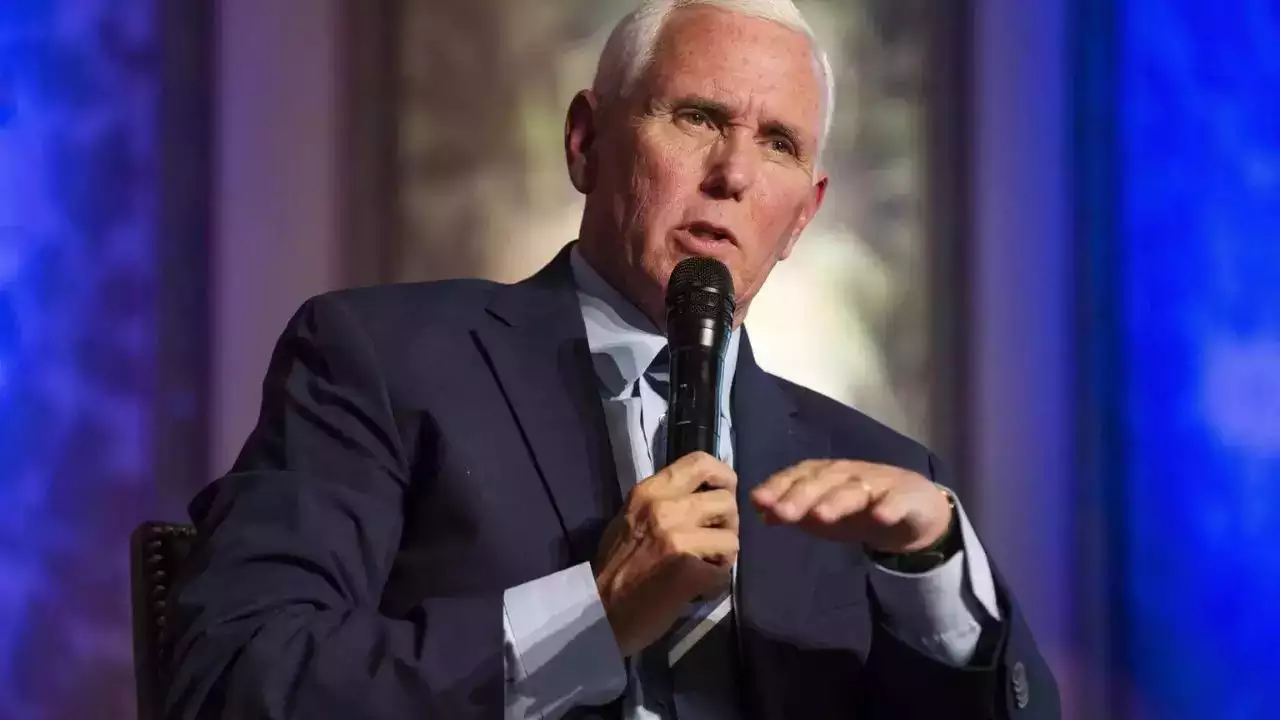Mike Pence’s Bold Move: Refusing to Endorse Trump for President – No Surprise There!
Former Vice President Mike Pence has made a significant announcement, stating that he will not be endorsing former President Donald Trump for the 2024 presidential election. In an interview with Fox News, Pence clarified his stance, indicating a notable departure from his former boss.
Addressing the question posed by host Martha MacCallum regarding his support for Trump, Pence unequivocally stated, “It should come as no surprise that I will not be endorsing Donald Trump this year.” Despite acknowledging the conservative accomplishments of the Trump administration, Pence emphasized the existence of “profound differences” between himself and the former president.
Pence’s decision not to endorse Trump stems from various factors, including their contrasting approaches to handling the aftermath of the 2020 election. Notably, Pence distanced himself from Trump following the latter’s refusal to overturn the election results preceding the January 6 riot at the US Capitol.
The chilling chants of “Hang Mike Pence” by Trump supporters during the insurrection further accentuated the growing divide between the two.
While Pence refrained from disclosing his preferred candidate, he made it clear that Joe Biden would not receive his vote. He asserted, “How I vote when that curtain closes, that’ll be for me,” underscoring his intention to maintain electoral privacy. Despite speculation, Pence ruled out the possibility of a third-party presidential bid, reiterating his allegiance to the Republican Party.

Pence did not shy away from criticizing Trump’s departure from core conservative principles, particularly on issues such as fiscal responsibility and abortion. He expressed dismay over Trump’s shifting stance on matters like the national debt and the sanctity of human life, citing instances where Trump diverged from established Republican ideologies.
Pence highlighted Trump’s inconsistency regarding TikTok policy and his recent reversal on adopting a tougher stance on China. Specifically, Pence pointed out Trump’s initial executive order to ban TikTok due to its Chinese ownership, juxtaposed with his subsequent opposition to the proposed legislation aimed at addressing this concern.
Pence’s critique underscores a broader pattern of inconsistency in Trump’s approach to geopolitical and economic issues.
Donald Trump, upon learning of Mike Pence’s decision not to endorse him for the 2024 presidential election, issued a combative response, further highlighting the growing schism within the Republican Party.
Characteristically, Trump did not mince words in response to Pence’s declaration. Expressing disappointment, Trump labeled Pence’s stance as a betrayal of the Republican base and dismissed it as a strategic move aimed at garnering political relevance.
Trump’s response to Pence’s non-endorsement centered on accusations of disloyalty and ingratitude. Trump referenced Pence’s role as vice president during his administration and suggested that Pence’s refusal to endorse him constituted a breach of loyalty to their shared political agenda.

Trump’s rebuttal to Pence’s decision underscored a personal vendetta, with Trump portraying Pence’s actions as motivated by personal ambition rather than principled disagreement. Trump insinuated that Pence’s refusal to endorse him was driven by a desire to distance himself from the fallout of the January 6 insurrection.
Despite the rift caused by Pence’s non-endorsement, Trump’s response aimed to solidify his base of supporters by framing Pence’s decision as an isolated act of disloyalty rather than reflective of broader dissent within the Republican Party.
Mike Pence’s decision not to endorse Donald Trump for the 2024 presidential election has laid bare the deepening divisions within the Republican Party, with significant implications for the party’s future trajectory and electoral prospects.
Pence’s non-endorsement represents a fissure within the Republican ranks, highlighting divergent ideological currents and competing visions for the party’s future. The rift between Pence and Trump underscores broader tensions between traditional conservatism and the populist brand of politics espoused by Trump.
Pence’s decision not to endorse Trump signals a recalibration of political alliances and strategic calculations among potential 2024 Republican contenders. With Pence distancing himself from Trump, other aspiring candidates may seek to position themselves as standard-bearers for alternative visions of Republican leadership.
The public dispute between Pence and Trump could influence voter sentiment within the Republican base and beyond. While some may view Pence’s stance as principled dissent, others may perceive it as a betrayal of Trump and his agenda, potentially shaping electoral dynamics in the lead-up to the 2024 election.
Related News:
- Fulton County Judge Set to Release Decision on Fani Willis Disqualification Tomorrow
- Baseball Star Steve Garvey Takes Lead Over Adam Schiff in California Senate Race
- Trump Slams Democrats’ Handling of Social Security, But Biden Vows: “No Cuts Under My Leadership”
Pence’s refusal to endorse Trump raises broader questions about party loyalty and ideological fidelity within the Republican Party. As the party grapples with internal divisions, candidates and voters alike must navigate competing loyalties and reconcile divergent visions for the party’s future direction.

